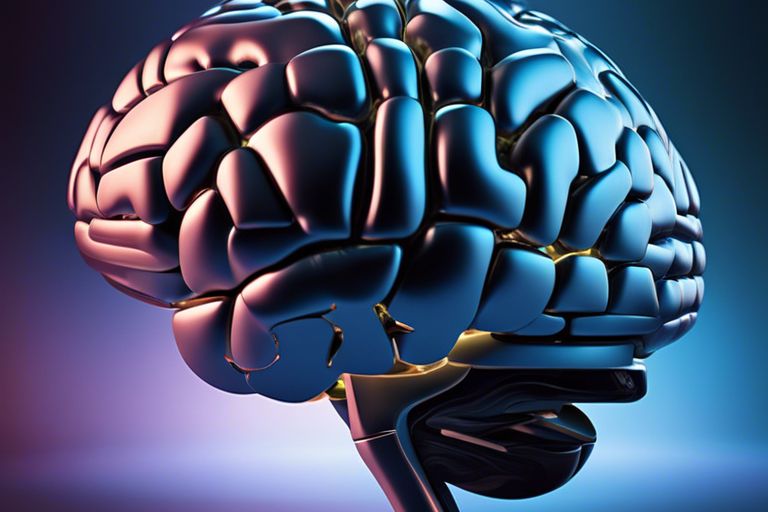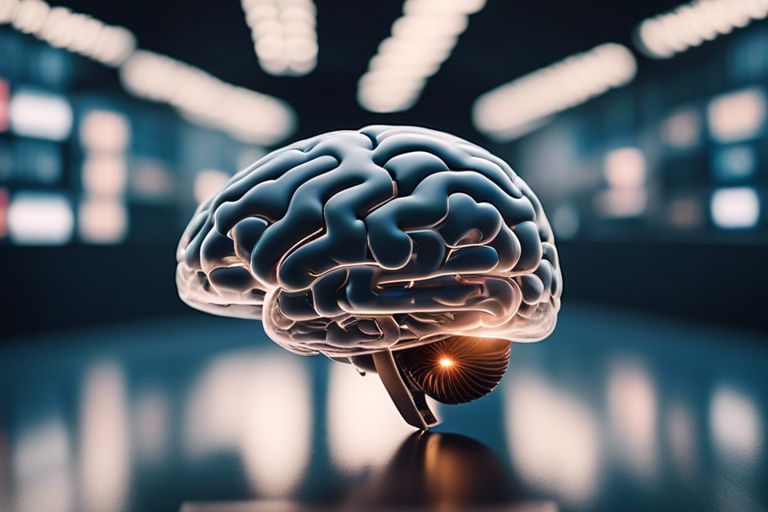Your brain is constantly evolving, adapting to new challenges and experiences. In our quest to boost cognitive performance, the future holds exciting innovations. From brain-computer interfaces to personalized nootropic combinations, you are on the verge of unlocking new levels of mental sharpness. Join us as we explore the upcoming trends shaping the landscape of cognitive enhancement.”
Key Takeaways:
- Advancements in technology: Technologies like brain-computer interfaces and neurofeedback are paving the way for innovative cognitive performance enhancement methods.
- Focus on holistic approaches: There is a rising interest in the holistic enhancement of cognitive performance, encompassing factors like nutrition, exercise, mindfulness, and sleep.
- Ethical considerations: With the development of new enhancement techniques, there is a growing need for ethical guidelines and regulations to ensure the safe and responsible use of cognitive enhancement methods.
The Current State of Cognitive Performance Enhancement
To enhance cognitive performance, individuals today have access to a variety of methods such as caffeine, nootropics, brain training apps, and lifestyle modifications. These methods aim to improve focus, memory, creativity, and overall mental acuity. While these options can be effective to a certain extent, there are limitations to consider.
Limitations of Current Methods
Current methods of cognitive enhancement may provide temporary boosts in performance, but they often come with downsides. For example, relying too heavily on caffeine for alertness can lead to dependence and withdrawal symptoms. Nootropics, while promising, lack extensive research on their long-term effects and potential risks. Brain training apps may improve specific cognitive skills but have limited transfer effects to real-world tasks. Lifestyle modifications like exercise and sufficient sleep are crucial for cognitive function but may not always suffice for significant enhancements.
Emerging Technologies
Technological advancements are paving the way for exciting new possibilities in cognitive enhancement. Emerging technologies such as transcranial magnetic stimulation (TMS), neurofeedback, and brain-computer interfaces show promise in directly modulating brain activity to enhance cognitive functions. These technologies have the potential to offer more targeted and potent methods of cognitive enhancement compared to traditional approaches.
Limitations in current cognitive enhancement methods have led researchers and innovators to explore new frontiers in technology to enhance cognitive performance. By leveraging advancements in neuroscience and engineering, emerging technologies hold the key to unlocking new ways to boost cognitive abilities beyond what is currently achievable.
Brain-Computer Interfaces (BCIs)
It is fascinating to think about how technology is advancing so rapidly that we are now able to directly interact with computers using our brains. Brain-Computer Interfaces (BCIs) are a remarkable innovation that allows for seamless communication between the human brain and external devices.
Neural Implants and Prosthetics
An exciting area of development in BCIs is the use of neural implants and prosthetics. These devices are implanted directly into the brain, enabling individuals with disabilities to control artificial limbs or other devices simply by thinking about the movements they want to make. The possibilities for enhancing cognitive performance and quality of life through these neural interfaces are truly groundbreaking.
Non-Invasive BCI Systems
Any discussion on BCIs would be incomplete without mentioning non-invasive BCI systems. Unlike neural implants, which require surgical implantation, non-invasive BCIs use external sensors to detect brain activity. These systems are more accessible and easier to use, making them a promising avenue for widespread adoption in the future.
Implants
Implants, both invasive and non-invasive, have the potential to revolutionize how we interact with technology and even enhance our cognitive abilities. The ability to control external devices or communicate directly with computers using only our thoughts is a concept that was once confined to science fiction but is now becoming a reality. The future of cognitive performance enhancement through BCIs is bright, and the possibilities are truly endless.
Neurostimulation Techniques
Not surprisingly, advancements in cognitive performance enhancement have led to the development of various neurostimulation techniques. These methods aim to modulate brain activity and improve cognitive functions. Let’s explore some of the key techniques that are shaping the future of cognitive enhancement.
Transcranial Magnetic Stimulation (TMS)
Transcranial Magnetic Stimulation (TMS) is a non-invasive technique that uses magnetic fields to stimulate nerve cells in the brain. By targeting specific regions of the brain, TMS has shown promise in enhancing cognitive functions such as memory, attention, and learning. Researchers are continually refining TMS protocols to optimize its effects on cognitive performance.
Transcranial Direct Current Stimulation (tDCS)
With Transcranial Direct Current Stimulation (tDCS), low levels of electrical current are delivered to targeted areas of the brain through scalp electrodes. This technique modulates neuronal activity and is believed to improve cognitive functions. tDCS is non-invasive and has been explored in various cognitive enhancement studies. Researchers are investigating its long-term effects and optimal stimulation parameters for different cognitive tasks.
Current research suggests that tDCS has the potential to enhance learning, memory, and attention in healthy individuals and those with cognitive impairments. The portability and affordability of tDCS devices make it an appealing option for cognitive enhancement interventions, sparking interest in its application across various fields, including education and neurorehabilitation.
Electroencephalography (EEG)-Guided Neurofeedback
Any discussion of neurostimulation techniques for cognitive enhancement would be incomplete without mentioning Electroencephalography (EEG)-Guided Neurofeedback. This approach involves monitoring brain activity through EEG and providing real-time feedback to help individuals regulate their brainwaves. By training individuals to modulate their brain activity patterns, EEG-guided neurofeedback holds promise for improving cognitive functions such as attention, memory, and mental performance.
Pharmacological Enhancements
Despite the ethical debates surrounding cognitive enhancement, pharmacological interventions to boost cognitive performance continue to intrigue researchers. Nootropics and smart drugs are among the most well-known substances used for this purpose.
Nootropics and Smart Drugs
With the growing popularity of nootropics and smart drugs, individuals are turning to substances like modafinil, racetams, and various others to enhance focus, memory, and cognitive function. These compounds work by targeting neurotransmitters in the brain, potentially improving neural pathways and cognitive processes. However, the long-term effects and safety of these substances remain a subject of ongoing research and debate.
Future Directions in Cognitive-Enhancing Pharmaceuticals
Pharmacological advancements in cognitive enhancement show promise for the future, with researchers exploring novel substances that could offer safer and more effective ways to boost cognitive function. These developments aim to address concerns related to the side effects and long-term impacts of current cognitive-enhancing drugs.
A deeper understanding of brain chemistry and neural pathways is driving research towards the development of medications that can target specific cognitive functions, providing more tailored and precise enhancements. As technology and scientific knowledge progress, the future of cognitive-enhancing pharmaceuticals holds the potential to revolutionize the way we approach cognitive performance.
Artificial Intelligence and Machine Learning
AI-Assisted Cognitive Training
The advent of Artificial Intelligence (AI) and Machine Learning has revolutionized the field of cognitive performance enhancement. Through the use of advanced algorithms, AI can analyze vast amounts of data to identify patterns and create personalized cognitive training programs tailored to your specific needs. The applications of AI in cognitive training are offering a more efficient and effective way to improve cognitive functions such as memory, attention, and problem-solving skills.
Personalized Learning and Adaptation
Any successful cognitive enhancement program requires personalized learning and adaptation to your individual abilities and progress. With AI-powered cognitive enhancement tools, you can benefit from adaptive learning systems that continuously adjust to your performance, providing you with customized exercises and challenges. This personalized approach ensures that you are always engaged and challenged at the right level, maximizing your cognitive growth and development.
AI-assisted personalization goes beyond traditional one-size-fits-all approaches by utilizing real-time feedback and data analysis to tailor the cognitive training experience to your unique cognitive profile. This level of customization allows for a more targeted and efficient way to enhance your cognitive abilities, leading to better outcomes in a shorter amount of time.

Virtual and Augmented Reality
Unlike traditional methods, the integration of Virtual Reality (VR) and Augmented Reality (AR) technologies has opened up new horizons in cognitive performance enhancement. According to a study on Cognitive Performance Enhancement for Multi-domain Operations, these emerging technologies have shown great potential in improving various cognitive functions.
Immersive Learning Environments
Any exploration of Virtual and Augmented Reality for cognitive enhancement must consider the profound impact of immersive learning environments. These technologies offer the ability to place you in realistic, simulated scenarios that require active engagement, decision-making, and problem-solving. By immersing yourself in these environments, you can enhance your cognitive abilities by practicing and refining skills in a dynamic and interactive way.
Enhanced Cognitive Training through VR/AR
VR and AR present opportunities for enhanced cognitive training that transcend traditional methods. For instance, VR simulations can replicate complex real-world scenarios in a controlled environment, allowing you to practice critical thinking, spatial awareness, and decision-making under pressure. Additionally, AR overlays digital information onto the physical world, creating a blended experience that can aid in memory retention and information processing. These innovative training methods can significantly improve your cognitive performance across a range of tasks and challenges.
Based on the capabilities of Virtual and Augmented Reality, incorporating these technologies into cognitive enhancement strategies can revolutionize the way you learn, problem-solve, and adapt to various situations. By leveraging the immersive nature of VR and the informational overlays of AR, you can unlock new potentials in your cognitive abilities, leading to more efficient and effective performance in multi-domain operations.
Ethical Considerations
Privacy and Security Concerns
All advancements in cognitive performance enhancement come with ethical considerations. When considering enhancing your cognitive abilities, one must reflect on the potential privacy and security concerns that may arise. With the use of technologies like brain-computer interfaces or cognitive-enhancing drugs, there is always the risk of data breaches or unauthorized access to your cognitive data. Protecting your privacy and ensuring the security of your cognitive enhancements should be a top priority.
Fair Access and Distribution of Cognitive Enhancements
Access to cognitive enhancements should be fair and equitable for all individuals. It is vital to consider how these enhancements are distributed to ensure that they are not only available to a privileged few. As cognitive enhancements have the potential to significantly impact one’s academic, professional, and personal life, it is crucial to promote equal access to these technologies for everyone.
It is important to advocate for policies and regulations that promote fair access and distribution of cognitive enhancements. By ensuring that these enhancements are accessible to all individuals, regardless of their socioeconomic status or background, we can create a more just and equitable society where everyone has the opportunity to enhance their cognitive abilities.
To wrap up
So, as research in cognitive performance enhancement continues to advance, it is exciting to think about the potential future trends that could improve our mental capabilities. Technologies like brain-computer interfaces, neurofeedback, and nootropics offer promising possibilities for enhancing memory, focus, and overall cognitive function. While these advancements hold great potential, it will be important to approach them with caution and ethical consideration to ensure they are used safely and responsibly.
Q: What are some future trends in cognitive performance enhancement?
A: Some future trends in cognitive performance enhancement include the development of nootropic drugs with fewer side effects, the use of neurofeedback technology for personalized brain training, and the growing popularity of brain-computer interfaces for enhancing mental abilities.
Q: How can neurofeedback technology improve cognitive performance?
A: Neurofeedback technology allows individuals to monitor and regulate their brain activity, leading to improved focus, memory, and decision-making skills. By training the brain to optimize its functioning, neurofeedback can enhance cognitive performance in various tasks.
Q: Are there any ethical concerns related to cognitive enhancement technologies?
A: Yes, there are ethical concerns surrounding cognitive enhancement technologies, such as the potential for unequal access to enhancements, issues of personal autonomy and authenticity, and the long-term effects of using cognitive enhancers. It is important for society to address these ethical considerations as cognitive enhancement technologies continue to advance.







